Shopping Cart
Remove All Your shopping cart is currently empty
Your shopping cart is currently empty
Anti-PKC beta Antibody (5T436) is a Rabbit antibody targeting PKC beta. Anti-PKC beta Antibody (5T436) can be used in FCM,ICC/IF,IHC,IP,WB.
| Pack Size | Price | USA Warehouse | Global Warehouse | Quantity |
|---|---|---|---|---|
| 50 μL | $298 | 7-10 days | 7-10 days | |
| 100 μL | $497 | 7-10 days | 7-10 days |
| Description | Anti-PKC beta Antibody (5T436) is a Rabbit antibody targeting PKC beta. Anti-PKC beta Antibody (5T436) can be used in FCM,ICC/IF,IHC,IP,WB. |
| Synonyms | Protein kinase C beta type, Protein kinase C beta, PRKCB2, PRKCB II, Prkcb, PKCβ, PKCbeta, PKC-B, PKCB, PKC β, PKC Beta, PKC B, KPCB_HUMAN |
| Ig Type | IgG |
| Clone | 5T436 |
| Reactivity | Human,Mouse,Rat |
| Verified Activity | 1. Western blot analysis of PKC beta 2 on Raji cell lysates using anti-PKC beta 2 antibody at 1/1,000 dilution. 2. Immunohistochemical analysis of paraffin-embedded human spleen tissue using anti-PKC beta 2 antibody. Counter stained with hematoxylin. 3. Immunohistochemical analysis of paraffin-embedded mouse brain tissue using anti-PKC beta 2 antibody. Counter stained with hematoxylin. 4. Immunohistochemical analysis of paraffin-embedded mouse spleen tissue using anti-PKC beta 2 antibody. Counter stained with hematoxylin. 5. ICC staining PKC beta 2 in SH-SY-5Y cells (green). The nuclear counter stain is DAPI (blue). Cells were fixed in paraformaldehyde, permeabilised with 0.25% Triton X100/PBS. 6. Flow cytometric analysis of Hela cells with PKC beta 2 antibody at 1/50 dilution (blue) compared with an unlabelled control (cells without incubation with primary antibody; red). Alexa Fluor 488-conjugated goat anti rabbit IgG was used as the secondary antibody. 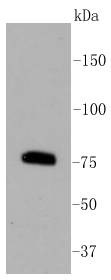 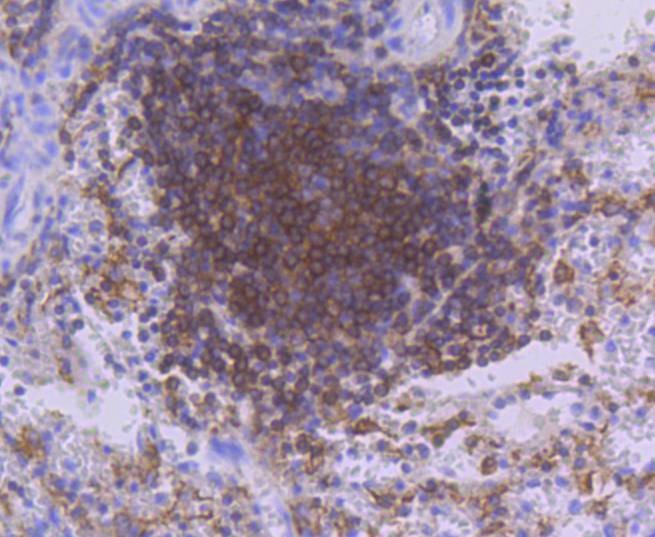 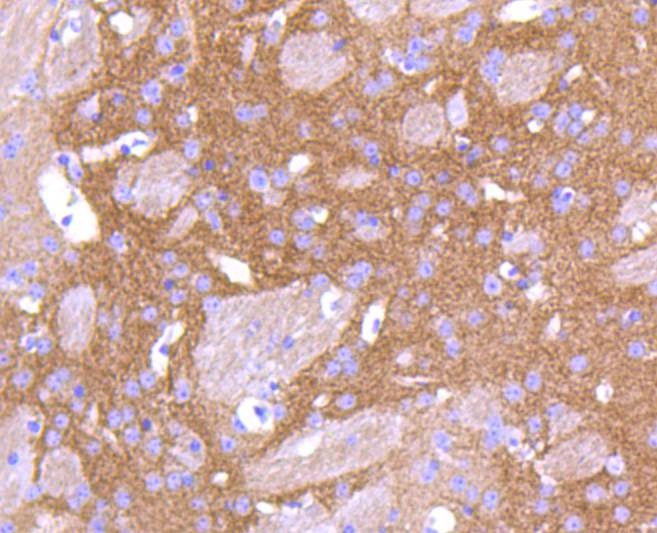 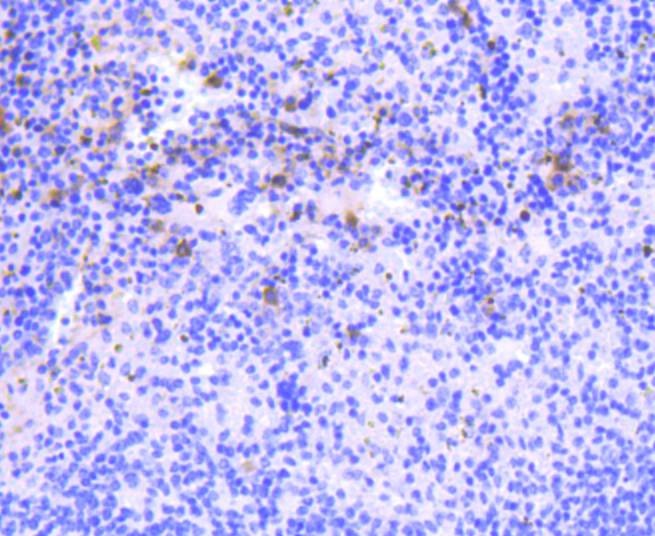 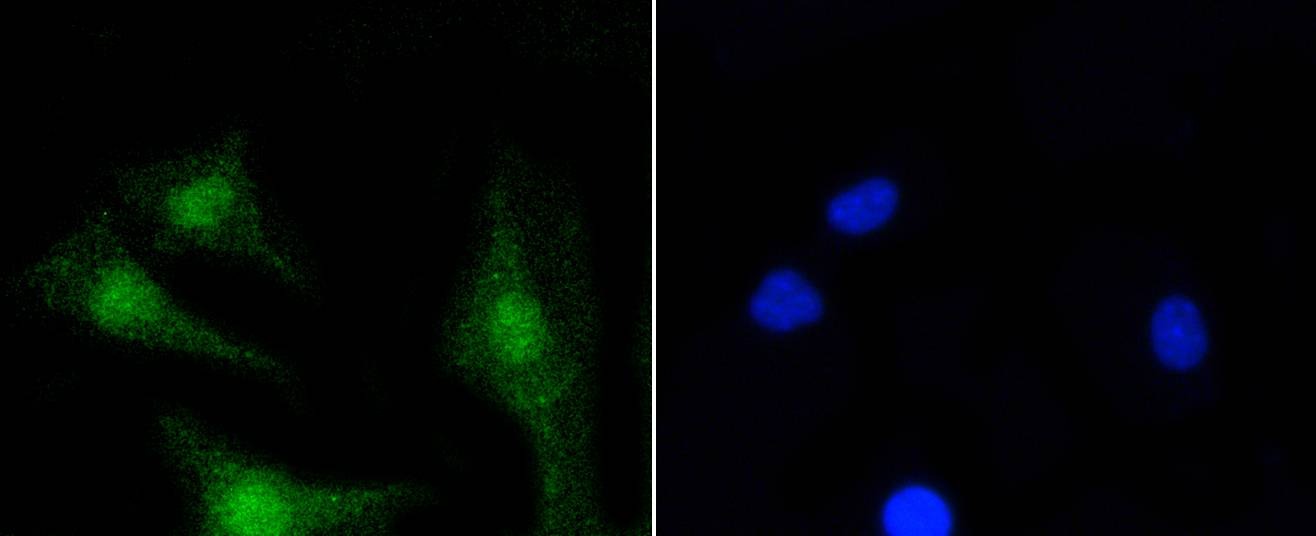 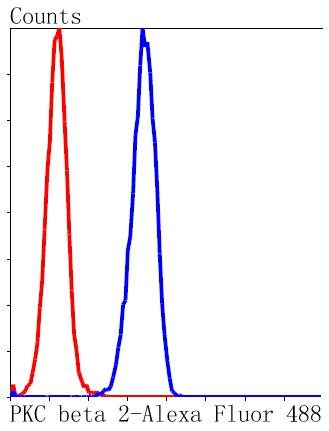 |
| Application | |
| Recommended Dose | WB: 1:1000-2000; IHC: 1:50-200; ICC/IF: 1:50-200; FCM: 1:50-100 |
| Antibody Type | Monoclonal |
| Host Species | Rabbit |
| Construction | Recombinant Antibody |
| Purification | ProA affinity purified |
| Appearance | Liquid |
| Formulation | 1*TBS (pH7.4), 1%BSA, 40%Glycerol. Preservative: 0.05% Sodium Azide. |
| Research Background | Members of the protein kinase C (PKC) family play a key regulatory role in a variety of cellular functions including cell growth and differentiation, gene expression, hormone secretion and membrane function. PKCs were originally identified as serine/threonine protein kinases whose activity was dependent on calcium and phospholipids. Diacylglycerols (DAG) and tumor promoting phorbol esters bind to and activate PKC. PKCs can be subdivided into at least two major classes including conventional PKC isoforms (α, βI, βII and γ) and novel PKC isoforms. Patterns of expression for each PKC isoform differ among tissues and PKC family members exhibit clear differences in their cofactor dependencies. For instance, the kinase activities of nPKC δ and ?? are independent of Ca2+. On the other hand, nPKC δ and ε, as well as all of the cPKC members, possess phorbol ester-binding activities and kinase activities. |
| Conjucates | Unconjugated |
| Immunogen | Recombinant Protein |
| Uniprot ID |
| Molecular Weight | Theoretical: 77 kDa. |
| Stability & Storage | Store at -20°C or -80°C for 12 months. Avoid repeated freeze-thaw cycles. |
| Transport | Shipping with blue ice. |
| Size | Quantity | Unit Price | Amount | Operation |
|---|

Copyright © 2015-2026 TargetMol Chemicals Inc. All Rights Reserved.